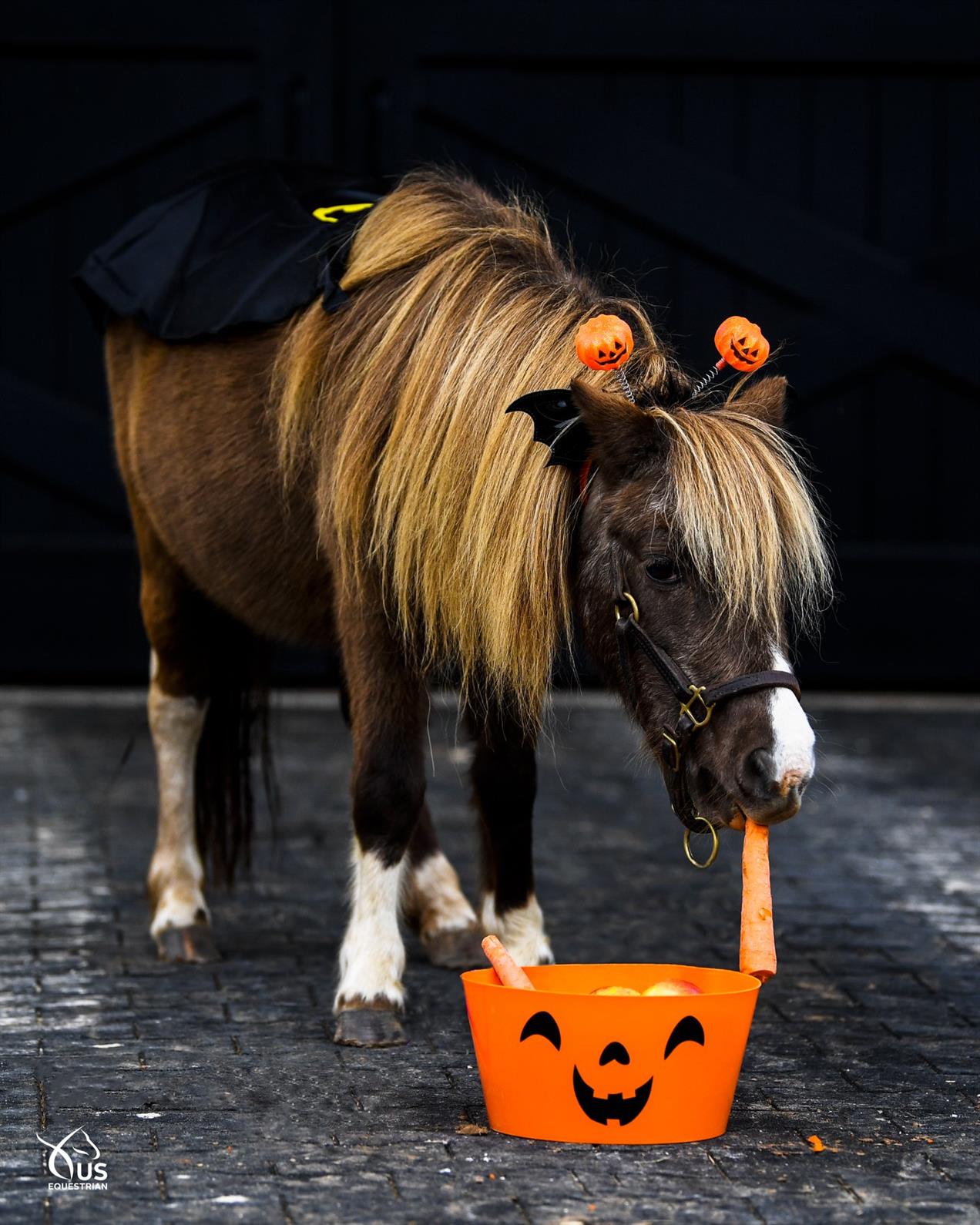It is finally “Spooky Season” and Halloween is right around the corner! Costumes for horses and their humans can be fun, cute, or clever. The creativity, enthusiasm, and sometimes downright brilliant horsemanship that equestrians put into creating their costumes is a joy to see every year.

However, costumes can sometimes make people feel uncomfortable, unsafe, and unwelcome. Costume decisions can be harmful or offensive to others if they appropriate or mock a culture or faith, promote a stereotype, or are racist. With the help of The Inclusion Playbook, we put together a brief guide of common costume pitfalls to avoid when dressing up.
1. Don’t dress in blackface or brownface
Painting your skin tone to mimic another race or ethnicity is never acceptable. Blackface is rooted in a centuries-old history of racist performances that relied upon and reinforced harmful negative stereotypes about people of color. Whether or not someone dressing up in blackface or brownface intends to invoke that painful history, they are participating in a tradition that is demeaning and hurtful.
Learn more – AP Explains: Brownface Part of Racist Face Makeup History
2. Avoid costumes that perpetuate harmful racial or ethnic stereotypes
Think twice about whether your costume perpetuates harmful stereotypes. For example, “gypsy” costumes often mock and caricature Roma people, and “wild native” or “savage” costumes dehumanize and misrepresent indigenous peoples. Such behavior is culturally insensitive and always inappropriate.
Learn more – A Culture, Not a Costume (from The Washington Post)
3. Avoid dressing up as a race or ethnicity that is not your own
Purporting to dress up as an entire race/ethnicity necessarily reduces that group of people into a series of (often-prejudicial) stereotypes. For example, it is offensive to dress up as a “Mexican,” an “Arab,” or an “Italian.”
Learn more – Cultural Appropriation, A Perennial Issue On Halloween (from NPR)
4. Avoid costumes that include religious objects or symbols of other cultures
Do not wear a costume that depicts or mocks meaningful traditions of other cultures. Disingenuously displaying important symbols is extremely disrespectful, as it ignores the religious and cultural significance of the symbols for the culture to which they belong. For example, do not dress up as a member or authority figure of a religious tradition that is not your own.
Learn more – 8 Dos And Don'ts Of Religion-Themed Halloween Costumes (from Huffington Post)
5. When in doubt, just choose another costume!
Equestrians are not the only people navigating mindful and inclusive costuming or figuring out how to live cultural appreciation rather than cultural appropriation. If you feel your costume falls into one of the above pitfalls, just choose another costume! It is every individual’s responsibility to live their values, and we hope you will join us in our efforts to make equestrian sport a welcoming and safe place for everyone.
Equestrians across the country are striving to make their barns, trails, horse shows, and every space in-between a safe, welcoming environment for all people and horses. When faced with these kinds of harmful and hurtful stereotypes, culturally insensitive behaviors, and racist traditions, people from those races and ethnicities may feel alienated from our equestrian community.
Learn more about diversity, equity, and inclusion at US Equestrian, including USEF’s Diversity, Equity, and Inclusion Action Plan, at usef.org/about-us/diversity-inclusion.
Share Your Feedback
Do you have thoughts or ideas about how US Equestrian can promote diversity, equity, and inclusion? Share your feedback with us in the DEI Feedback portal! Feedback can be submitted anonymously.
Additional Resources on Costuming and Cultural Appropriation (listed alphabetically):
- Avoiding Cultural Appropriation for Your Horse Halloween Costumes, from The Plaid Horse
- Cultures Aren’t Costumes, from AP
- How the History of Blackface Is Rooted in Racism, from the History Channel
- PSA: These 7 Halloween “Costumes” Will Always Be Offensive, from Bustle


